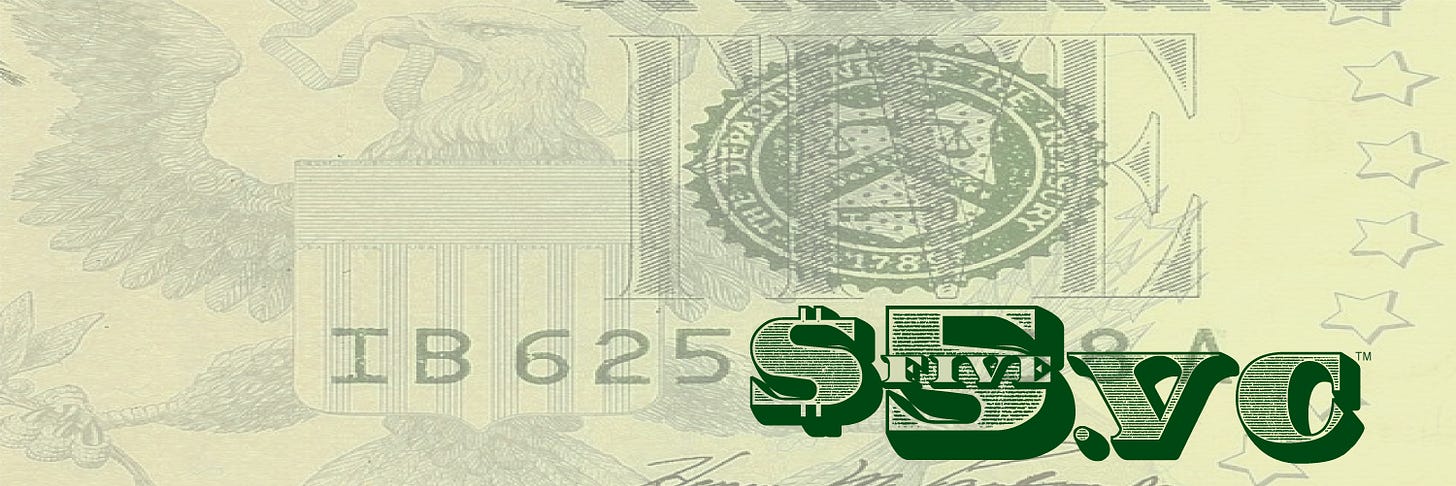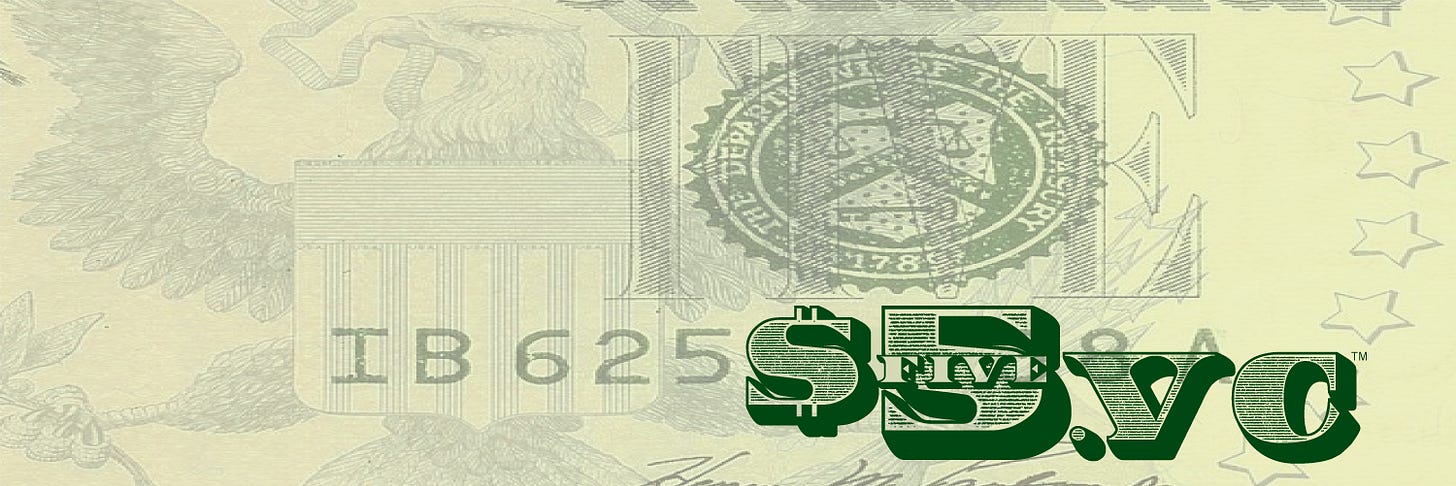Search Engines are in such a mood... the FOMO to capitalize on Ecom is REAL! 😨😬🙀
Part One is all about What We Know in our two-part trend report.
WELCOME to $5.vc, your source of differentiated startup intel!
* We break down the new market indicators & behavioral consumer trends we're tracking, then figure out the unlock to growth & revenue.
** Follow our new Twitter for upcoming OPEN DMs / Q&As. 👍
ICYMI in the last 10 weeks we covered:
Niche Interests make for Nice Friends… addafriend.com
Linkedin dropped the ball, Link-in-Bio is now here!
Hyper-Casual Social Casino SMS Text Gaming is FIRE!
Post-Purchase Branded Customer Experiences prints money!
NFT-based Artwork AND Fractional Investing!
THIS WEEK’S DOPE NEW STARTUP IDEA COVERS:
* Search Engines + Native Marketplaces + Shoppable Email 🔥
WHAT WE KNOW:
* The Market Indicators & Behavioral Consumer Trends we've identified.
>> [ ecom marketplaces killed it in 2020! ]
Marketplaces Year in Review 2020
- thanks marketplace pulse! https://twitter.com/marketplacepuls
2020 was the best year for ecommerce marketplaces in over a decade. Ecommerce growth had a step change, and marketplaces captured most of it.
Amazon marketplace added eBay’s worth of sales to its GMV this year.
In 2020, sellers on the Amazon marketplace sold an estimated $295 billion worth of products, increasing their sales by $95 billion, up from $200 billion in 2019. Attracted by that, nearly $1 billion in fresh capital was committed to firms looking to acquire Amazon sellers and brands.
The Amazon seller is now in its third form. The Amazon seller 1.0 was a reseller. Advertising on Amazon and private label brands created the Amazon seller 2.0. The current seller - the Amazon seller 3.0 - is building Amazon-native brands, intentionally selling multi-channel, driving traffic from outside of Amazon, and investing in social commerce. The underlying Amazon marketplace building blocks remain the same, but the seller had to evolve to create more value and differentiate from the competition.
>> [ yahoo goes all-in and makes a big bet in marketplaces! ]
‘We’re not trying to be the everything store’: Why Verizon is launching its Yahoo Shops marketplace
- thanks modern retail! https://twitter.com/modernretail
Yahoo is entering the marketplace wars.
Last week, Verizon Media Group — the Verizon subsidiary that owns Yahoo — announced that it is building out a third-party marketplace called Yahoo Shops, which will launch with roughly 50 sellers later this year and will integrate with Verizon Media brands like Engadget.
This is Verizon Media’s biggest, but not its first, step into the e-commerce landscape. Right now, its main property, Yahoo, has a shopping hub similar to Google Shopping, a tab in which thousands of brands can display products, but all of the products it features link off to external brand websites. Verizon also has an integration with Walmart where Yahoo Mail users can order groceries, and see a tailored list of grocery recommendations, within their email accounts.
Yet while Yahoo might be helping customers discover products, the company isn’t capturing the actual purchases on its own platform. By building a marketplace that funnels those purchases in-house, Verizon can both keep a cut of the commission and refine its own ad targeting.
The race to become an e-commerce hub on the scale of Amazon and Walmart is crowded. Players like Google, TikTok as well as Facebook’s family of apps are all building out marketplaces of their own — in part to strengthen their core ad businesses.
Brands are increasingly moving their ad dollars to marketplaces like Amazon, given that Amazon’s data on what people are actually buying is more attractive than ever — and Yahoo is the latest company trying to catch up to that trend.
>> [ customer purchase data is gold and amazon is its fort knox! ]
As privacy changes loom, Amazon stands to reap the greatest reward
- thanks michael! https://twitter.com/michaelwwaters
Amazon’s data is increasingly helping to target those upper-funnel customers in a way that Google and Facebook cannot always match.
Shelerud used the example of someone who bought car replacement parts on Amazon. “That may say I’m in the market for a new truck in the next year or two,” he said. And because customers don’t frequently go to Google and Facebook to buy car products, that type of data “is what Google or Facebook miss out on.”
One sign of Amazon’s rise is that Google and Facebook are investing in marketplaces, in part to capture sales data.
Google recently added a checkout feature to Google Shopping, called Buy On Google, and Facebook has added shopping capabilities across its entire suite of apps. Even Twitter is testing a shop button.
Customer purchase data is increasingly valuable, and while Shelerud noted that Google’s and Facebook’s push into commerce has multiple motives, he said “I think it’s part of the competition” with Amazon.
>> [ email makes a super smart bet too!! ]
Yahoo Mail users can buy ‘Groceries from Walmart’ right from inbox
- thanks supermarket news! https://twitter.com/sn_news
Called “Groceries from Walmart,” the service marks the first time that an email provider allows users to fill a shopping cart straight from their email inbox, Sunnyvale, Calif.-based Verizon Media said Monday.
Clicking on the emails they receive in their inbox, consumer can browse grocery items, add them to their cart and complete the transactions with Walmart within Yahoo Mail.
Verizon noted that the service streamlines the shopping experience by enabling Yahoo Mail users to make grocery purchases from Walmart, the world’s largest grocery retailer, within the mail app they use daily to track promotions, coupons and other functions.
In addition, the shopping cart never expires, allow consumers to keep adding items throughout the week and check out whenever they’re ready.
>> [ desperate to stay relevant retailers look for answers! ]
Can digital marketplaces feed grocery shoppers' growing e-commerce appetite?
- thanks jessica! https://twitter.com/jldumont6
As retailers examine how to evolve their online platforms and secure consumer loyalty, many are weighing the merits of a digital marketplace strategy that promises endless aisles of products not found on store shelves.
Tory Gundelach, senior vice president of retail insights with Kantar Consulting, said more retailers want marketplaces because they get a dual benefit of expanding the assortment for their shoppers without having to take on the risk to their balance sheet.
"A marketplace is great when it provides a vast selection of products," Kaziukenas said. Amazon, he noted, adds thousands of sellers a day. He also pointed to Walmart as one retailer that has done well with its marketplace. About 90% of the products on Walmart.com come from Walmart's marketplace, with the retailer providing the rest, he said. Walmart also adds a couple thousand new sellers per month and sees a lot of success with brand names.
>> [ even google is feeling the pressure! ]
Google’s marketplace is free for sellers. The results so far are mixed
- thanks michael! https://twitter.com/michaelwwaters
Google is first and foremost an ads business, and most of its e-commerce decisions come down to maintaining its relevance in the ad world.
As Amazon rapidly grows its own advertising infrastructure, allowing Amazon sellers to buy prominent ad slots on Amazon.com, Google is feeling the pressure. There’s some evidence that the conversion rate on a product ad might be higher on Amazon, an already dedicated e-commerce marketplace, than in Google search. So Google’s solution seems to be: if marketplace ads work better than search ads, then Google needs to build out a marketplace.
“A lot of CPG brands, they’ve moved a lot of their budgets into Amazon ads.”
“Google looks at this and says, what does the future of shopping look like and how do we put ourselves in a position to continue to be relevant?”
THE DOPE IDEA & THE BRAND EXECUTION:
* Taking the idea and amplifying that into tactical action.
See you next week for the second half of our two-part report.
We’ll discuss on how to position ourselves as a new player in the Search Engines + Native Marketplaces + Shoppable Email space — and get into the development of the Brand IP, securing a legit Domain Name, then making it Internet LIVE.



